The Evolution of Employee Experience in the Workplace
.png)


 Cut onboarding time
by 60%—here's the
Ultimate Checklist
that helped do it.
Cut onboarding time
by 60%—here's the
Ultimate Checklist
that helped do it.

The working world of 2025 is almost unrecognizable when compared to the societal norms of our parents and grandparents. In fact, the way the average American navigates their workplace is likely to be dramatically different today than it was even a few short years ago prior to the global pandemic.
Just how much the employee experience has evolved since the start of the decade, finding that 26%of the US workforce is now employed in an entirely remote role, 74% of US companies are planning to implement some degree of hybrid work model in the near future and 37% of businesses now employ some form of AI technology in order to support essential operations.
The evolution of the employee experience is an ongoing process that doesn't seem to be slowing down any time soon, with a recent UK-based four-day workweek trial seeing such success that 91% of involved companies intend to continue the schedule indefinitely. But how did we get here? And what will the future of work look like? Let's explore the evolution of employee experience in the workplace and the development of workforce engagement strategies.
20th-Century Work 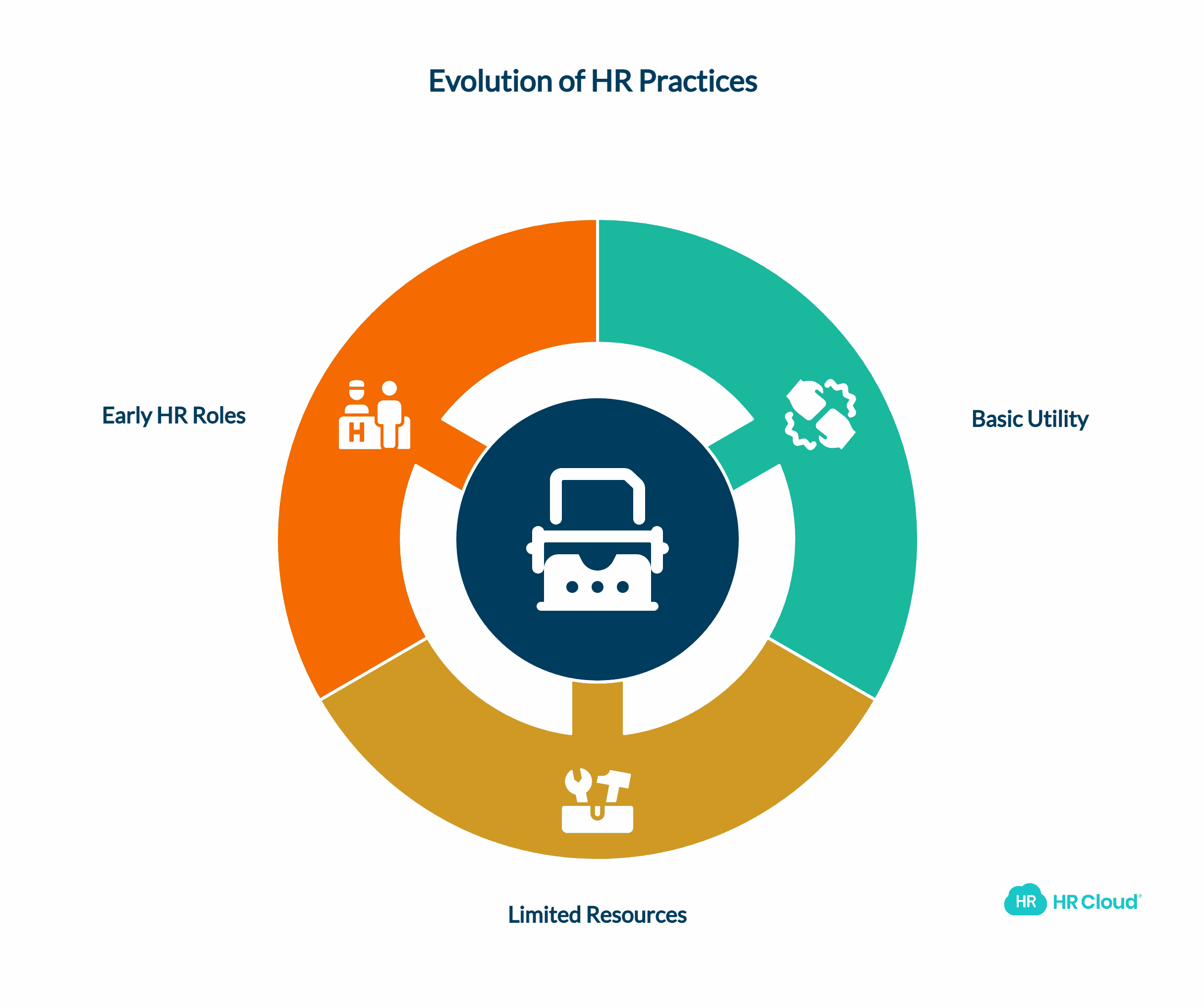
The traditional relationship between employer and employee has always been based on utility. Businesses had work to complete, and workers were in need of money; outside of this arrangement, little thought was ever directed towards the benefits and perks issued by today's HR professionals.
The only resources available to staff were the tools necessary to get the job done, that means no wellness programs, flexitime, mandatory breaks, or considerations towards employee feedback, just a basic agreement that if X amount of product was produced, then X amount of money would be paid.
Of course, HR did exist back then, with the first recorded US human resources department being formed at the National Cash Register Co in the early 1900s. Though the roles and duties performed by HR teams in this era of work were far less involved than those mandated for all workers today, the concept of human capital management was still in its infancy.
Improving Productivity 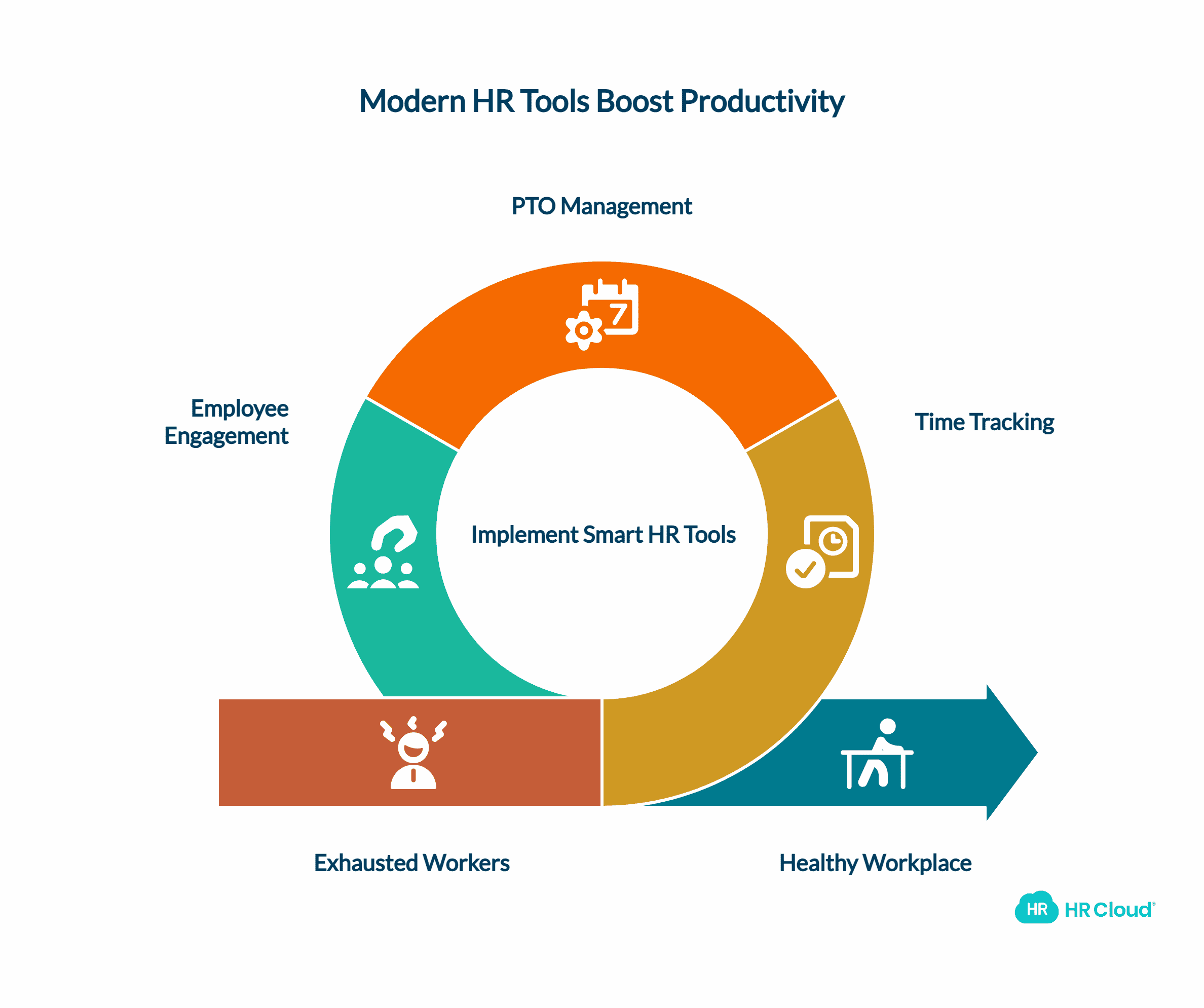
As industrialization began to shape modern society into a more profit-driven economy, employers turned their focus towards optimizing productivity and employee performance. In the modern era, teams can turn towards smart HR tools like time tracking software and PTO management systems to fine-tune productivity without causing staff burnout, though traditional methods were not so kind.
The employee experience was not yet considered an important aspect of a healthy workplace, and automating repeatable tasks using robots and AI wouldn't be possible for decades, leaving workers to be driven to exhaustion by stopwatch-wielding managers determined to speed up essential processes by any means necessary. Often, just to shave off a few seconds of time to further maximize productivity.
During this era, workers' rights movements would gradually become more involved in trying to improve the employee experience by advocating for improvements towards equality, better working conditions, and a larger focus on health and wellbeing, with HR being integral to these changes. This period marked the beginning of more structured employee engagement strategies.
Employee Engagement
As workers' rights movements began to enact meaningful change towards the end of the 20th century, employers began to understand the value of loyalty and engagement in the workforce. By appealing to the needs of workers and facilitating a positive work environment, staff are far more likely to remain loyal and engaged, with data suggesting that these efforts can lead to a 12% increase in productivity.
This shift towards a more needs-based employment model has formed the foundations of the modern employee experience, with HR tools such as recognition and reward programs existing to ensure that all high-performing employees feel respected and valued as important members of the workforce.
Engagement is one of the most talked-about aspects of the modern work environment, with efforts to retain valuable members of staff often dependent on which perks and initiatives HR teams are able to offer in order to improve the employee experience and boost talent retention. To encourage employee engagement, organizations are now developing comprehensive employee engagement strategies that align with their overall talent strategy. These strategies focus on creating a work environment that fosters motivation, productivity, and job satisfaction. Thankfully, in the modern era, these processes can be streamlined and optimized through the use of integrated and intelligent HR management solutions, forming a comprehensive talent management framework.
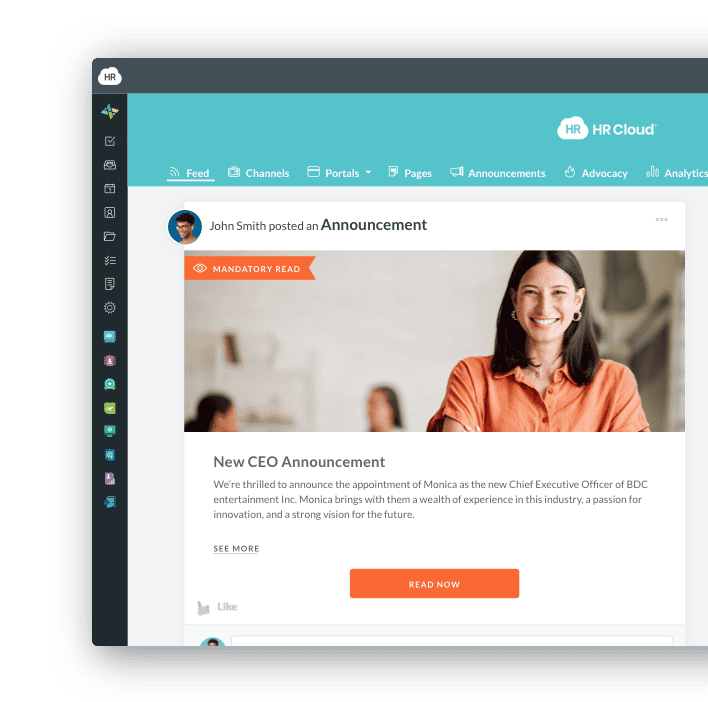
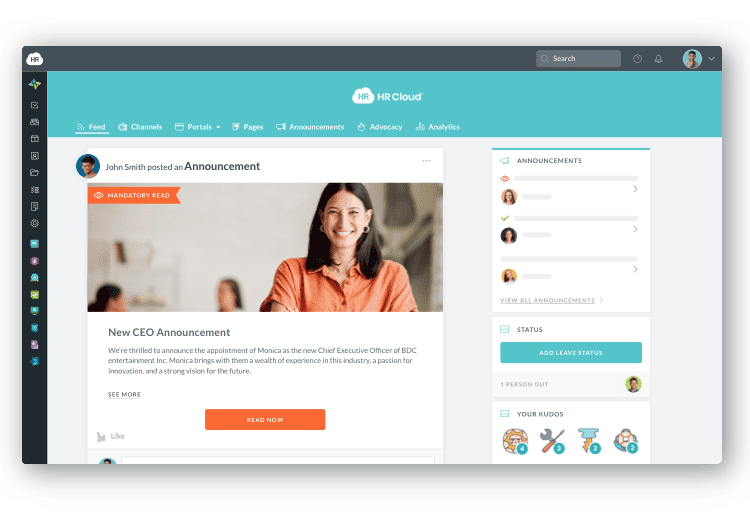
The Modern Employee Experience
Business owners and HR professionals across all sectors now understand the value of facilitating a happy, engaged, and respected workforce, leading to the modern pursuit of creating a working environment in which employees want to be at work, to exceed expectations, and to build careers.
HR teams and managers have several tools at their disposal to cultivate such an employee experience, with the three main pillars of this process being culture, technology, and the use of physical space, though to truly succeed in appealing to the workforce, it’s essential that teams understand their employees.
Modern talent management software is designed to leverage analytics and combine data insights with personal testimonies to help employees and HR professionals find solutions that uplift entire organizations. By measuring everything from collaboration metrics to new and predicted workplace trends, advanced HR software is able to nurture a proactive and positive company culture equipped to provide benefits beyond productivity. These tools form the backbone of effective talent management frameworks, supporting the entire talent management process from recruitment to retention.
By optimizing recruitment and onboarding solutions to find the right staff who share the same workplace values, attitudes, and standards, HR professionals can help to build high-performing and optimistic teams. By implementing intelligent performance management systems into daily operations, managers can help staff achieve critical goals and advance much further in their careers. Additionally, organizational talent assessment tools can help identify strengths and areas for improvement within the workforce, enabling more targeted development initiatives.
Employee engagement metrics play a crucial role in modern HR practices, allowing companies to measure the effectiveness of their engagement initiatives and make data-driven decisions. These metrics can include factors such as job satisfaction, productivity levels, and turnover rates, providing valuable insights for team talent management strategies.
In short, modern HR tools are very much the foundation on which the modern employee experience is built, delivered, and maintained, supporting effective talent management practices and enhancing the overall employee value proposition.
The Future of the Employee Experience 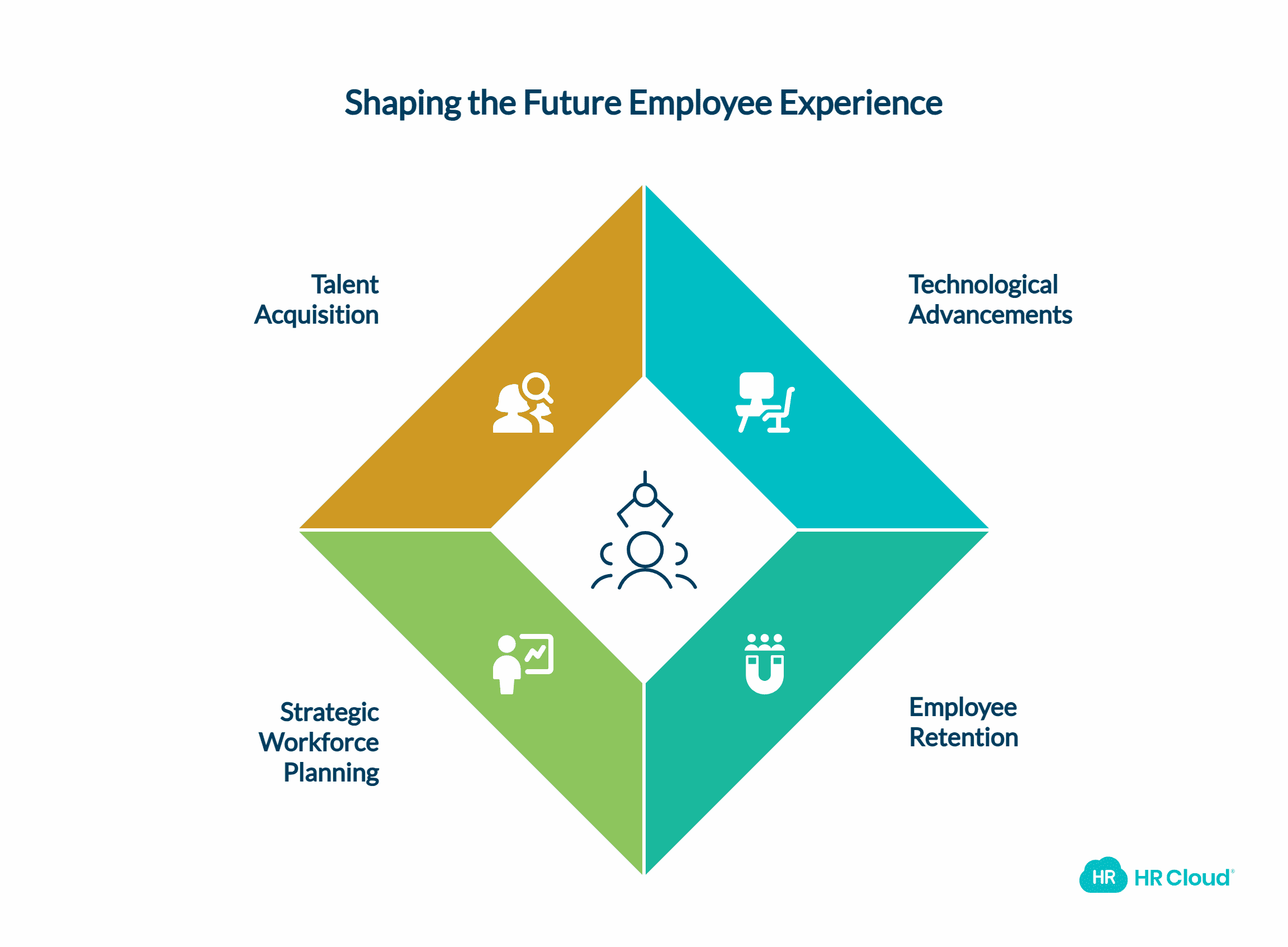
Though the employee experience has drastically improved in recent years, advancements in technology and changing attitudes towards work look set to provide further benefits in the near future. Whether it’s the use of an AI-powered camera system to improve parking management or an elevator access control system to improve on-site security and convenience, technology is primed to aid all employees.
Technology also helps to facilitate remote and hybrid work models to help employees achieve a healthier work-life balance, with collaborative software, virtual meeting programs, and even remote onboarding solutions able to provide employees with more flexibility and respect within their roles.
By addressing the needs of employees through the use of technology, organizations can retain high-performing staff members and ensure that they feel satisfied and respected at work, which in and of itself can increase staff retention rates by as much as 110% and workplace engagement levels by 55%.
As we look to the future, strategic workforce planning will become increasingly important, with a focus on identifying and nurturing high-potential employees. Talent acquisition strategies will need to evolve to meet the changing demands of the workforce, with an emphasis on providing clear career growth opportunities and fostering a culture of continuous learning and development. Organizations will need to develop comprehensive talent strategy frameworks that encompass all aspects of the employee lifecycle, from recruitment to retirement.
The best talent acquisition practices will involve a holistic approach, considering not just skills and experience but also cultural fit and potential for growth. The talent acquisition process will become more sophisticated, leveraging AI and data analytics to identify and attract top candidates. Companies will need to set clear talent acquisition goals that align with their overall business objectives and talent planning initiatives.
Summary
The evolution of employee experience in the workplace has a long and storied history, from traditional working environments solely focused on productivity to modern organizations centered around wellbeing and engagement. Technology and analytics have helped to change the way we work for the better, supporting comprehensive workforce engagement strategies that drive organizational success.
By utilizing intelligent HR tools and investing time into understanding the needs of employees, modern workplace cultures are positioned to produce positive and truly productive teams, though the pursuit of the ideal employee experience is ever-changing and aided by further advancements in technology. For organizations to stay ahead of changing attitudes and position themselves to provide new and existing staff with the resources needed to succeed, decisions must be made with the informed insights and analytics produced by well-integrated, maintained, and intelligent HR solutions.
This way, teams can ensure that the evolution of the employee experience continues to benefit staff and businesses alike, creating robust talent management frameworks that support long-term organizational success. As we move forward, the focus on creating effective workforce engagement strategies and talent strategy frameworks will be crucial in attracting, retaining, and developing top talent in an increasingly competitive business landscape.
FAQ's
1. What is the future of employee experience in the workplace?
The future of employee experience will be heavily influenced by technology, especially in terms of AI-powered tools, remote and hybrid work models, and advanced analytics for employee engagement. With the use of smart HR tools, companies will be able to provide more personalized and flexible working environments, improving work-life balance and employee satisfaction.
2. How has the employee experience evolved in the past decade?
The employee experience has undergone a significant transformation, from a traditional, utility-based relationship between employers and employees to a more holistic approach that emphasizes wellbeing, engagement, and flexibility. With remote work, hybrid models, and AI-driven solutions now commonplace, businesses are prioritizing employee satisfaction, leading to higher productivity and retention.
3. What HR strategies are most effective in engaging employees?
Modern HR strategies focus on three main pillars: culture, technology, and physical space. By leveraging technology for performance management, offering flexible work options, and creating a positive work culture, HR teams can enhance employee engagement, leading to higher satisfaction, loyalty, and retention.
4. How does technology impact employee engagement?
Technology has become integral in enhancing employee engagement, from collaboration tools for remote work to performance management systems that help employees set and track career goals. By using analytics, businesses can measure employee satisfaction and identify areas for improvement, ensuring that engagement levels remain high across all teams.
5. How will AI and data analytics change HR practices in the future?
AI and data analytics are set to revolutionize HR practices by providing deeper insights into employee performance, engagement, and retention. These tools will help HR teams make more data-driven decisions, streamline recruitment processes, and optimize employee experience initiatives. AI will also be key in personalizing the employee journey, from onboarding to career development.
Author Bio:
Meet Luca Beach, an expert in human resources with a focus on employee satisfaction and loyalty. Apart from working with Verified Movers, he has worked in the field of employee appreciation programs for many years and brings valuable knowledge and information to the table. He is passionate about creating inspired and productive workforces and can help businesses improve employee appreciation initiatives.
Keep Reading
Top 10 Best Employee Engagement Software
An employee engagement platform acts as a hub for the daily or other periodic rituals of
How to Improve Employee Engagement in Healthcare: 9 Simple Things to Start Doing Today
Improving employee engagement in healthcare teams directly impacts the level of care
Employee Engagement Best Practices: The Dos and Don’ts (Free Manager Checklist Inside)
If you follow the right employee engagement best practices, that can turn engagement
Like What You Hear?
We'd love to chat with you more about how HR Cloud® can support your business's HR needs. Book Your Free Demo

Build a Culture of Recognition. Boost Engagement. Guaranteed.
Workmates empowers employees to stay informed, connected, and appreciated—whether they’re on the front line, in the office, or remote. Recognition drives 12x higher engagement.Trusted by industry leaders in every sector




Cut Onboarding Costs by 60%.
Take the confusion and follow-ups out of onboarding with automated workflows, digital forms, and structured portals—so new hires ramp faster 3X quicker.Trusted by industry leaders in every sector




